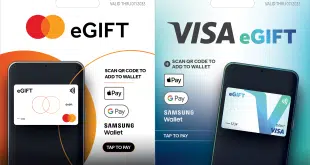Global Payments Inc. was one of the first merchant acquirers to identify the payments opportunities in pairing up with independent software vendors and related firms that serve businesses with all manner of applications, and now those channels are bringing in 40% of revenues, chief executive Jeff Sloan said Wednesday.
That percentage is up from 30% in 2015, and is heading toward 50%, Sloan told analysts on a conference call to review Atlanta-based Global Payments’ third-quarter financial results. “There are two fundamental drivers of share gains for our business: expansion of our integrated and vertical markets, and our e-commerce and omnichannel solutions,” Sloan said. “Each of these businesses grew organically at double-digit rates in the third quarter.”
After absorbing the big merchant acquirer Heartland Payment Systems Inc. last year, Global Payments on Sept. 1 closed on its $1.2 billion acquisition of two major units of the Active Network, a provider of management software for event sponsors. Active is on track to generate $180 million to $185 million in revenues, chief financial officer Cameron M. Bready said on the call, and a new Active client is the firm that runs the Tour de France.
Global bought the Active Network units from Vista Equity Partners, with which the processor has a partnership to search out payments opportunities among the private-equity firm’s approximately 45 portfolio companies. “Our sales folks are pretty charged up, because that portfolio of businesses looks like real opportunity for us over time,” said David E. Mangum, Global Payments’ president and chief operating officer.

The first deal beyond Active already is in the works. That’s with San Clemente, Calif.-based DealerSocket Inc., which provides customer-relationship management software to more than 2,000 automobile dealers, most of them independents but also some franchises. “This is a material potential partner for us,” said Mangum.
Global Payments’ focus on higher-margin software and online channels comes as its so-called wholesale or indirect business with independent sales organizations declines as a percentage of revenue. In fact, the U.S. ISO-related business contracted in the mid-single digits percentage-wise year over year, Bready said. The decline prompted an analyst to ask why the company doesn’t exit that line of business.
Global Payments, however, plans to continue working with ISOs, according to Bready. “It’s still a profitable business for us,” he said, noting that Global Payments serves about 90 ISOs. “There’s no reason to exit it rapidly, quite frankly, we still we have a number of good ISO partners and we think we’re a very good partner to them.”
There’s no question, however, that Global Payments will continue putting its resources into channels where it deals directly with merchants. “As a strategy matter, we’ve been pivoting away from our wholesale channel for going on four years now,” said Bready. “We’ve invested probably north of $6 billion to move to more of a direct-distribution business here in the U.S., and obviously I think that strategy speaks for itself in terms of how it’s played out over the past few years.”
Global Payments reported net revenues of $1.04 billion up 9% from $951.9 million in 2016’s third quarter. The U.S. and Canada brought in $764.9 million in revenues, up 6%. Net income doubled to $110.7 million.





